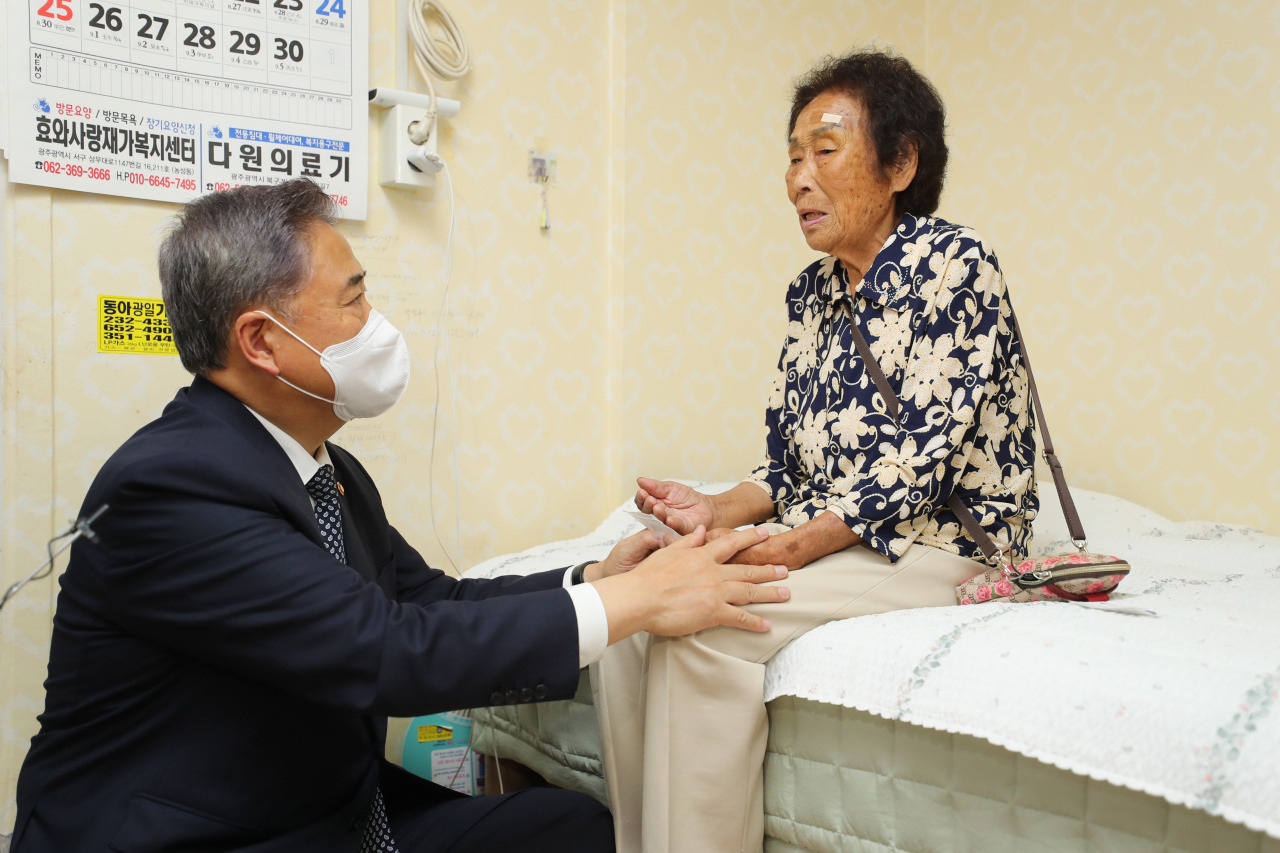More options than 'foundation-led' compensation considered for Japan's wartime forced labor, Seoul says
Foreign Ministry rejects local reports in Japan, says 'nothing has been decided' on how to handle court ruling on historic dispute
By Jo He-rimPublished : Oct. 24, 2022 - 14:30

Nothing has been decided on how to handle the dispute concerning Japan's wartime forced labor, the South Korean Ministry of Foreign Affairs said Monday, refuting Japanese news reports that the two countries are considering a foundation-led compensation plan as the sole option.
Seoul’s Ministry of Foreign Affairs said it is “not discussing that one specific solution only,” and that “nothing has been decided yet.” The ministry said it has delivered the opinions of the victims to Japanese government, and has also urged Japan to respond sincerely to the victims.
Japan’s Kyodo News reported late Sunday that the governments of South Korea and Japan are discussing a plan by which an independent foundation would pay compensation for Korean victims who were forced into labor by Japanese firms during wartime with contributions made by Korean companies.
Under the plan, the envisioned foundation would take on the liability of the Japanese companies that have been ordered by South Korea's top court to liquidate their local assets to pay compensation to the victims for their wartime wrongdoings.
Seoul's ministry also rejected the report that Japanese Prime Minister Fumio Kishida and South Korean President Yoon Suk-yeol are considering to meet on the sidelines of major international conferences scheduled next month, also saying on that has not been decided. International summits, including the Group of 20 Summit and Asia-Pacific Economic Cooperation are planned for November.
The historic dispute of forced labor between South Korea and Japan has been one of the major sticking contributing to the deterioration of bilateral relations to the worst level in decades.
In 2018, South Korea's top court ordered the liquidation of local assets seized from two Japanese companies, Mitsubishi Heavy Industries and Nippon Steel, to provide compensation to victims they forced into labor during the Japan's 1910-1945 colonial rule of the Korean Peninsula.
The conflict has deepened as the Japanese firms refused to take liability and restated its government's position that all claims stemming from its annexation were "settled completely and finally" under a 1965 bilateral agreement.
As the Seoul top court has yet to deliver the final ruling on the asset liquidation, the Yoon Suk-yeol administration has been working to find a way to resolve the issue without liquidating the assets, as that would likely see bilateral relations with Japan plunge to their worst level.
Some alternative plans being discussed to handle the court's ruling without asset liquidation include a third party assuming the Japanese firm's liability, and Japanese companies taking part in donations with other Korean companies to provide the compensation for the damages.
A victims group has also demanded a sincere apology from the Japanese companies.
First Vice Minister Cho Hyun-dong is expected to discuss solutions to the forced labor issue with his Japanese counterpart this week on the sidelines of the 11th vice ministerial talks between South Korea, the United States and Japan, slated for Wednesday in Tokyo.
By Jo He-rim (herim@heraldcorp.com)







![[Hello India] Hyundai Motor vows to boost 'clean mobility' in India](http://res.heraldm.com/phpwas/restmb_idxmake.php?idx=644&simg=/content/image/2024/04/25/20240425050672_0.jpg&u=)











